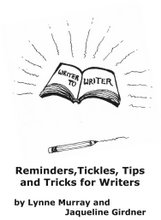Reeling, Film Writings 1972-1975, Pauline Kael
Exploring the Crack in the Cosmic Egg, Joseph Chilton Pearce
Don't ask me why I was reading this second book, instead of the first book this guy wrote: The Crack in the Cosmic Egg: New Constructs of Mind and Reality that has all the kudos from Alan Watts, etc. Probably my local library didn't have a copy of that one available. Maybe I would have liked that better, maybe not. But I did not like this book. I started by saying I was repelled by its obtuse arrogance. Then I got a little verbose myself on how verbose I thought it was concluding that it was "Just another spellbound-by-zen-koans driveler." Yikes.
Gladiator-at-Law, Frederick Pohl and C.M. Kornbluth
The Best of Cordwainer Smith, (J. I. Pearce, Ed., Intro.)
I really love this author and enjoyed the web page his daughter put up in his honor.
The Source, James Mitchener
I noted: began….
I still have this book and still have not finished it.
May 25 to June 2, 2006
Shooting Water: A Memoir of Second Chances, Family, and Filmmaking, Devyani Saltzman
This is a memoir of youth written by the Jewish/Indian daughter of two filmmakers, who is 19 when the book begins in 1999, when Saltzman is trying to reconnect with her mother, Deepa Mehta, during the filming of the final installment of her trilogy, Water (after Fire and Earth). The book evokes India, Oxford and Sri Lanka with a very lyrical quality.
The Tipping Point, How Little Things Can Make a Big Difference, Malcolm Gladwell
This book is fascinating, and some of the insights can be immediately useful when you realize (I did anyway) how certain behavior patterns can be unconsciously triggered by settings. (e.g., whatever I do when I start the day, I notice that I continue to do for a few hours unless interrupted. So if I start writing, I'll write for a few hours. If I start reading email and surfing the web…oh, well.
I also couldn't help but consider Philip Zimbardo's Stanford Prison experiments in the 1970, which Gladwell cites. After scoring normally on psychological tests, students were randomly assigned to be "prison guards" wearing uniforms and dark glasses, or "prisoners" wearing uniforms with numbers. After six few days they had to close down what was meant to be a two-week experiment because of the sadistic behavior that had arisen spontaneously from the "guards" and the prison revolt that ensued.
The lesson, as Zimbardo concluded, is that "specific situations are so powerful that they can overwhelm our inherent predispositions." To me this is clearly shown in the Abu Ghraib and Guantanamo prisoner abuse scandals. I don't think it's useful to pretend that this dark nature does not exist. It's easier to trigger the behavior than it is to control it and we need to know what works. Gladwell has some interesting ideas about what does and does not work.




No comments:
Post a Comment